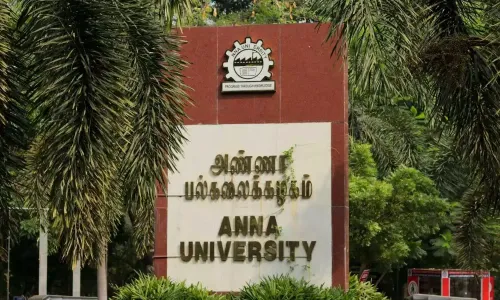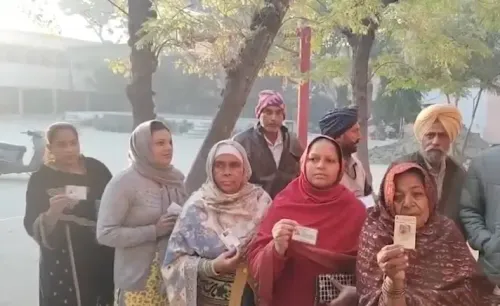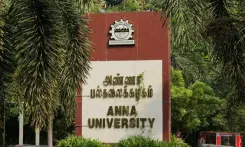What Led to the Arrest of Delhi Acid Attack Victim's Father?

Synopsis
Key Takeaways
- Delhi Police have arrested the victim's father in a surprising twist.
- The investigation reveals inconsistencies in the victim's account.
- Forensic analysis confirms the use of potent acid in the attack.
- Previous grievances complicate the narrative surrounding the case.
- Authorities are urged to enhance women's safety measures in educational institutions.
New Delhi, Oct 27 (NationPress) In a remarkable twist in the acid attack incident occurring near Laxmi Bai College, the Delhi Police have successfully located and arrested Akil Khan, the father of the 20-year-old victim, who had previously been reported missing.
The arrest, confirmed late Monday evening by senior officials at Bharat Nagar police station, signifies a crucial turning point in an investigation already fraught with inconsistencies, familial disputes, and conflicting stories of harassment and vengeance.
Khan, a 45-year-old factory owner from Mukundpur, was discovered hiding in a relative's home in neighboring Ghaziabad following a tip-off from local intelligence sources.
According to police insiders, he is currently being transported back to Delhi under heavy escort for rigorous questioning, which is expected to begin early Tuesday at the station's interrogation cell.
Authorities have suspicions regarding his involvement in orchestrating aspects of the incident or fabricating details to support the original complaint, although no formal charges have yet been filed against him in the acid attack FIR.
The incident occurred on October 26 around 10:52 a.m., when the victim—a second-year student from the Non-Collegiate Women’s Education Board affiliated with Delhi University—was admitted to Deep Chand Bandhu Hospital with severe burns on both hands and minor splashes on her stomach.
In her initial statement to Sub-Inspector Ravi Rathi, she accused an acquaintance named Jitender, a 28-year-old married painter from Gali No. 17 in Mukundpur, along with his accomplices Ishan and Arman, of ambushing her on a motorcycle while she was en route to an extra class at the college in Ashok Vihar.
She claimed that Jitender, whom she accused of stalking her for over a year—culminating in a heated argument a month prior—was behind the assault, with Arman throwing the corrosive substance.
Forensic analysis by the Forensic Science Laboratory confirmed the liquid to be a potent acid, causing five percent burns primarily from her instinctive action of shielding her face with her bag.
A case under Sections 124(1) and 3(5) of the Bharatiya Nyaya Sanhita was registered as FIR No. 605/2025, with crime scene teams meticulously searching the area near the college gate for residue and eyewitnesses.
However, within hours, the investigation began to unravel inconsistencies in the victim's account. Call Detail Records (CDR), CCTV footage from Ashok Vihar and Karol Bagh, and multiple witness accounts placed Jitender at a valid painting contract in Karol Bagh from dawn, with his motorcycle stationary there during the attack timeframe.
No footage captured the alleged trio approaching or escaping the scene, and spectral tests on site samples yielded inconclusive traces inconsistent with a high-velocity throw.
Further investigation unveiled a complex web of previous grievances. On October 24—just days before the attack—Jitender's wife had filed a PCR complaint at Bhalswa Dairy police station, accusing Khan, her former employer at his now-defunct garment factory from 2021 to 2024, of repeated sexual harassment, coerced physical relations, and extortion via compromising photographs and videos.
This separate FIR is currently under active investigation, with Khan's arrest now potentially linking the threads. CCTV timelines further complicated the narrative; the victim left her Mukundpur home on a scooter driven by her brother, who inexplicably dropped her blocks away from the college before disappearing. She then switched to an e-rickshaw for the final leg of her journey.
The brother's absence for questioning has heightened suspicions of familial collusion, prompting police to issue a lookout notice and conduct raids on potential hideouts in outer Delhi. Ishan and Arman, brothers from Mangolpuri, remain in Agra with their mother Shabnam, a survivor of a 2018 acid attack she attributes to Khan's relatives over a disputed property in Mangolpuri still in court.
Shabnam has promised their prompt return for polygraph-assisted interrogations, suggesting a long-standing feud that may have escalated into this proxy violence.
As the victim, now moved to Ram Manohar Lohia Hospital for specialized burn treatment and psychological support, issues a public plea for justice—insisting on the stalker's guilt despite evidentiary gaps—Delhi Lieutenant Governor VK Saxena has ordered a time-bound inquiry.
The National Commission for Women and student organizations like the Students' Federation of India have condemned the incident as indicative of failing women's safety, calling for enhanced AI-monitored surveillance around campuses.
Deputy Commissioner Bhisham Singh warned that while the injuries are undeniable, establishing motive requires forensic and testimonial rigor to prevent injustice.
With Khan's interrogation set to reveal confessions or alibis, this saga—from alleged predation to possible perjury—exposes the corrosive undercurrents of personal animosities in a city facing 147 acid attacks reported in 2025 alone, according to data from the National Crime Records Bureau. The truth, it appears, may prove to be the most searing element yet.










